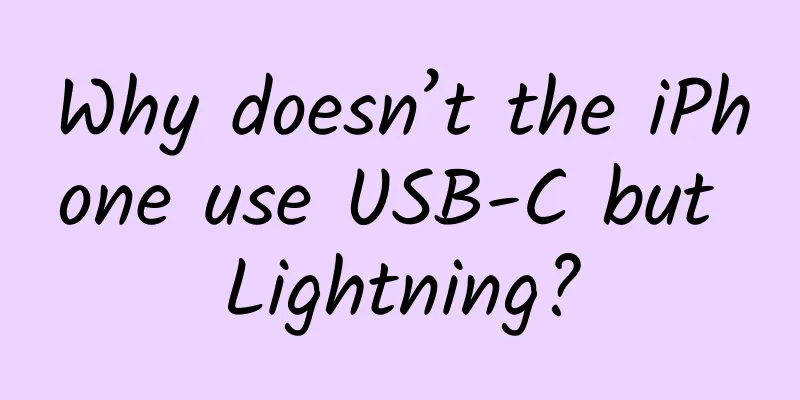Fighting each other is not the right solution. Domestic companies should take a look at Apple and Microsoft.

|
"We have no eternal enemies, nor eternal friends. My bounden duty is to fight for our own interests." This sentence, a brilliant speech by British Prime Minister Winston Churchill during World War II, later became the diplomatic principle of Britain. In today's Internet technology market, where companies may work together one day and fight against each other the next, this is still the most basic rule of survival. From the fight between Xiaomi and LeTV over TV video business at the beginning of the year to the recent sensational 360 Coolpad incident, the fierce competition in the domestic technology circle has almost become a must-see in marketing strategies in the past six months of 2015. But looking back at the overseas technology circle, Apple and Microsoft, the happy enemies, have been fighting for more than 30 years, and they are still competing elegantly, and can show the demeanor of helping each other when appropriate. Therefore, compared with this kind of competition in the overseas technology circle, the competition between domestic technology companies seems to be less elegant than a village woman scolding in the street. Here are a few examples of conflicts among some of the more chaotic circles, and also explore the reasons behind this gap. TV Circle: Xiaomi VS LeTV The quarrel between Xiaomi and LeTV originated from an interview with Xiaomi co-founder and vice president Wang Chuan in "Chinese Entrepreneurs" at the beginning of the year, which was titled "Lei Jun's younger brother Wang Chuan fired back: LeTV is doomed!" LeTV responded, "If we can't join hands, we can at least forget each other." The war of words continued to escalate. First, Xiaomi criticized LeTV for not having enough content and charging fees. LeTV responded that Xiaomi Video had infringements and hidden charges. In the middle of the year, Xiaomi held a special communication meeting to criticize LeTV for violations and scams, and even invited reporters, fund managers, analysts, etc. to attend the meeting. This was simply unheard of. As a result, LeTV's stock price plummeted that day. The next day, LeTV responded that Xiaomi did not understand the law and misled the public. The two sides took turns to make a scene, and the dispute became a mess. The fight between Xiaomi and LeTV can be completely understood as a fight between two newcomers on the same battlefield in order to seize territory. Mobile phone circle: 360 VS Coolpad The tech news in the past two weeks cannot avoid the bloody drama of the "love-hate relationship" between 360 and Coolpad. On the morning of September 8, 360 announced that it had officially notified Coolpad that it would exercise its put option and require Coolpad to acquire 49.5% of Qihoo 360's shares. Subsequently, Coolpad officially issued a statement through Weibo and an announcement, saying that there was no breach of contract and that it would reserve the right to pursue 360's legal liability. On September 10, its affiliated company LeTV also issued a message accusing 360 of going back on its word. On September 14, Coolpad executives went to Beijing to negotiate with 360. On the evening of September 18, 360 announced that it had reached a new agreement with Coolpad Group on the equity adjustment of the joint venture company Qihoo Technology. 360's shareholding in Qihoo increased to 75%. At this point, the two-week war of words basically came to an end. However, there are countless incidents of “street fighting” in the mobile phone industry. Whether it is the traditional big manufacturers Samsung and Huawei, or the emerging ones such as Xiaomi, LeTV, Meizu, OnePlus, etc., every press conference is a war of words. E-commerce circle: Tmall VS JD.com It is no longer surprising that there are conflicts in the e-commerce circle. Moreover, almost every time a shopping festival is approaching, the two rivals, Tmall and JD.com, will post some indirect texts and pictures on their respective websites to attract attention. On the eve of the 6.18 e-commerce war this year, JD.com was frequently exposed for counterfeit and second-hand goods, as well as its bad attitude and other negative news. Tmall then produced a series of posters to directly attack JD.com for its counterfeit and second-hand products. Overseas: Apple and Microsoft: Both Friends and Enemies Compared with the chaotic war in China, the two old enemies, Apple and Microsoft, have put aside their past grudges and joined forces. At the Apple new product launch on September 10, Phil Schiller, Apple's senior vice president of global marketing, said, "Who knows production better than Microsoft!" and then invited Microsoft executives to introduce the application of Office on iPad Pro. This simple endorsement is a milestone in the development of the relationship between Apple and Microsoft. Since 1984, the arrogant and powerful Apple II refused to cooperate with Bill Gates, so Jobs turned around and sold Excel, file, Chart and other products to IBM, opening the era of Microsoft's global popularity. From 1985 to 1995, Gates became the richest man in the world, transforming himself from a beggar to Bill Gates. Apple was on the verge of collapse, but Gates accepted the olive branch from Steve Jobs, who returned to Apple, and developed software and applications for MAC. It was this help that helped Apple get through a difficult time and laid the foundation for its subsequent expansion into a business empire. Another classic scene of the cooperation between the two is that in 1997, shortly after Jobs returned to Apple and the company was in its most difficult time, Gates invested $150 million in Apple for non-voting shares; in return, IE became the default browser on Mac. Of course, Gates once publicly criticized Apple for not having a good enough team spirit. Jobs also retorted, claiming that Gates and Microsoft were narrow-minded and sarcastic. Microsoft believed that Apple was often attacked by hackers and Windows was more secure. Apple claimed that Microsoft was copying its and Google's R&D systems. Not only that, Apple teased its opponents in almost every press conference... But no matter how complicated the grievances and hatreds in the past thirty years were, this time they chose to put aside their differences and appear together on the stage in San Francisco, which must be to promote their own products - to make money. It has to be said that "fighting" is a very popular marketing method in China. It can fully mobilize the enthusiasm of the audience, so that the companies involved in the fight can fully guarantee the exposure rate. For physical users, it is not a bad thing to reasonably distinguish the interests from the competition among merchants and obtain upgraded services and lower prices from them. On the other hand, the joint efforts of Microsoft and Apple also show us another more effective marketing method. The reasons for this differentiation at home and abroad are mainly the following: 1. Differences in market maturity It is undeniable that under the overall situation of "mass entrepreneurship and innovation", my country's science and technology industry has developed rapidly, but it is still at a disadvantage of starting late compared with Western countries such as the United States. From the above, we can see that technology giants such as Apple and Microsoft have also experienced a stage of mutual criticism, but after the accumulation of product experience and the great melting of the global market, they finally moved towards cooperation and mutual assistance. Therefore, to a certain extent, the challenges and declarations of war by major domestic technology manufacturers today are only a stage of market evolution and development. 2. Different target groups According to the United Nations, in 2000, only 4% of China's urban population could be considered middle class. This proportion had grown to about two-thirds in 2012. It is expected that by 2022, this proportion will rise to 75%, reaching 630 million people, almost twice the current population of the United States. In other words, domestic technology companies only need to lock in potential consumer groups in China, which is a huge piece of cake. As for Western technology companies such as Apple and Microsoft, they emphasize the importance of the global market chain. 3. The difference between media relations and brand positioning Compared with domestic technology companies that use Weibo and WeChat Moments to attract attention by making harsh remarks, Western technology companies pay more attention to maintaining their brand image, are able to actively handle media relations, and know how to take appropriate emergency measures when facing negative reports. Conclusion: How to swear in the correct way? In the technology circle, a phrase that is often used to joke with each other is "Your circle is so messy". The types of technology companies that are tearing each other apart listed above by Zhidongxi should be typical examples of how messy your circle is. Moreover, both the time span and the ferocity of the quarrels are extremely bad. But even in the domestic business environment, there are many examples of going from quarrels to mergers, such as the obvious merger of Youku Tudou, the merger of Didi and Kuaidi, and the merger of 58 and Ganji, etc. There are still many examples that can be cited now. To sum up the relationship here, the key factor is how to maximize the common interests. In the end, it still echoes what Churchill said. The difference is whether it can be less vulgar and swear every day. No matter whose brand it is, it will appear so rustic in front of users. |
<<: Apple releases iOS 9.0.1, fixes multiple bugs
>>: The beginning and end of whether the flow is cleared or not
Recommend
A PK between two thousand star phones: Honor X10 and iQOO Z1, which one is more worthy of choice?
For students, choosing to buy a phone during the ...
In May 2024, sales of new forces rebounded, and Ideal delivered 35,000 vehicles, and Weilai and Zeekr set new records
China's auto market rebounded in May, in line...
2022 Father's Day Overseas Influencer Marketing Plan
The warmth of Mother's Day has not yet faded,...
How to improve conversion rate? Here are 9 suggestions for you!
A design change can increase website click-throug...
Simple homemade mooncake recipe, easy to operate, nutritious and delicious!
【Halal Date Paste Mooncake】 raw material: Crust: ...
Analyze Baidu's bidding operation and ranking skills!
With the rapid development of Internet e-commerce...
Nothing happened but sales collapsed, with monthly sales of LS6 falling below 500 units. What exactly happened to Zhiji?
How long does it take for a car to go from being ...
Google's powerful Android UI toolkit dominates Github, here's a guide to getting started
In 2019, Google publicly released a non-bundled t...
Huyong.com SEO: SEO optimization practical training video tutorial
Hu Yong’s personal profile: He started studying S...
How to efficiently create a set of advertising creative materials?
How to design a good set of materials quickly and...
Case analysis: How to build a community content system and active users?
This sharing session will mainly focus on strateg...
How many eggs should you eat every day? Experts: It depends on how much the eggs affect your blood lipids!
Two of my patients with hyperlipidemia, The test ...
Adidas vs. Tencent Games, which one is better in fancy marketing?
The daily life of an internet person: when I open...
Follow the master "Du Yasong" to master the assessment and diagnosis of children and adolescents
Course Catalog 01 The significance of diagnosis a...
In an Internet environment that has lost its dividend, two ways to find a “breakthrough point”
Based on my observations and thoughts in recent t...









